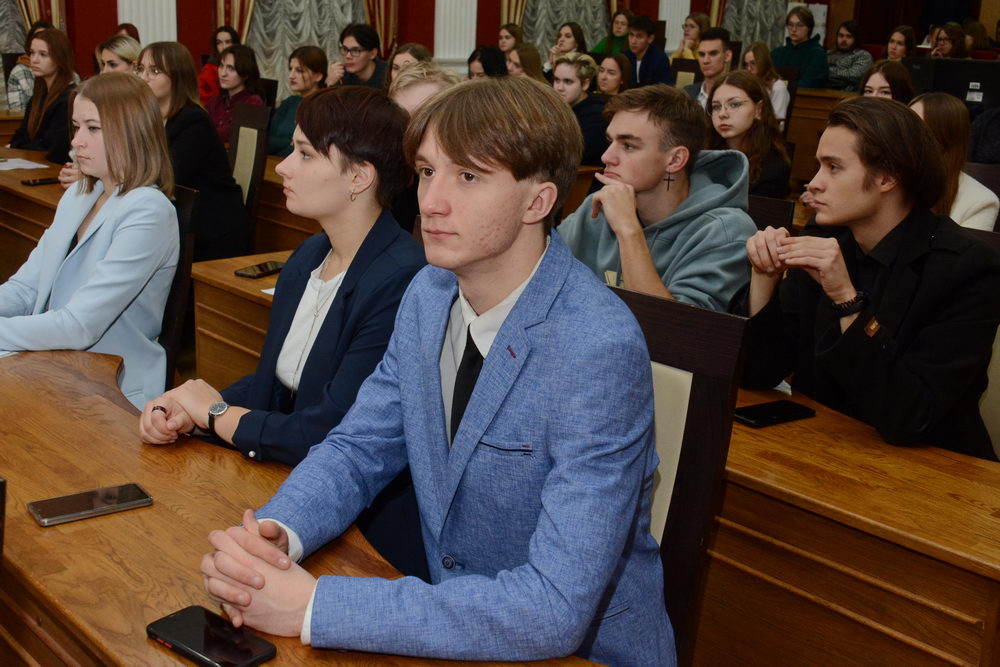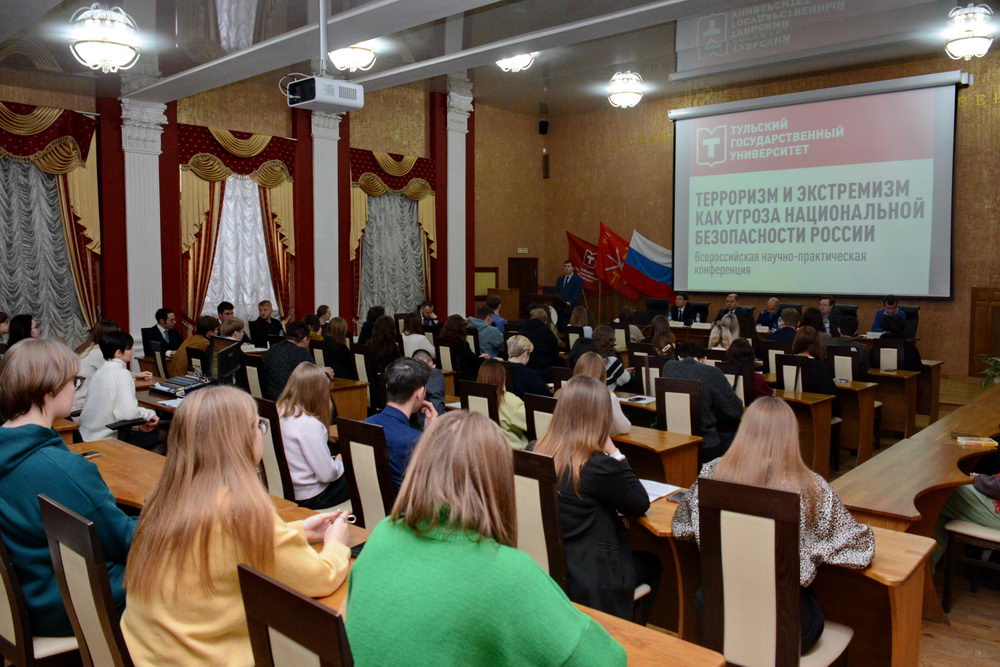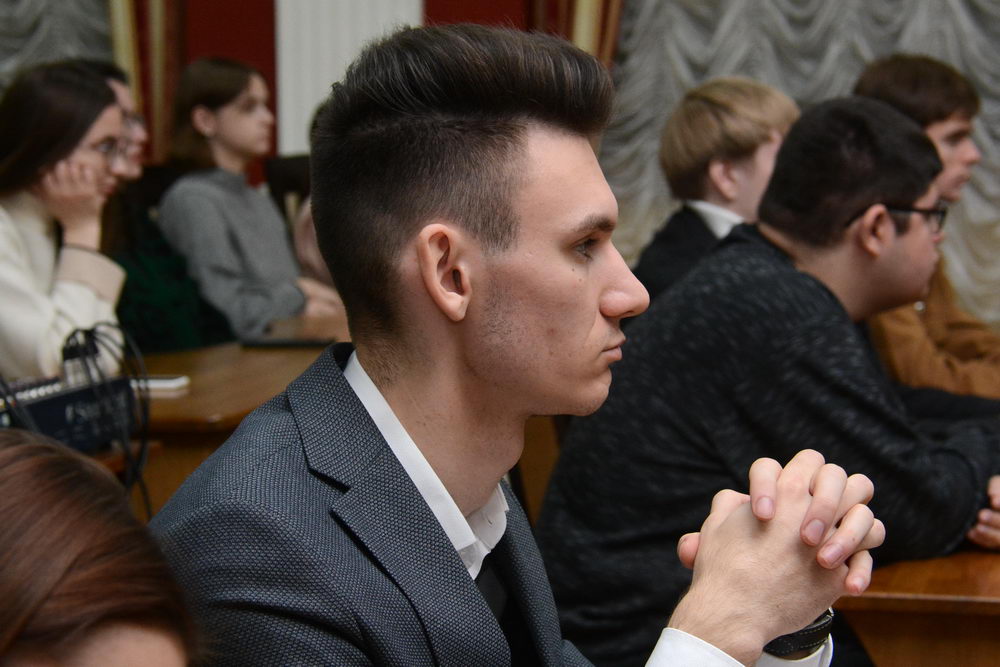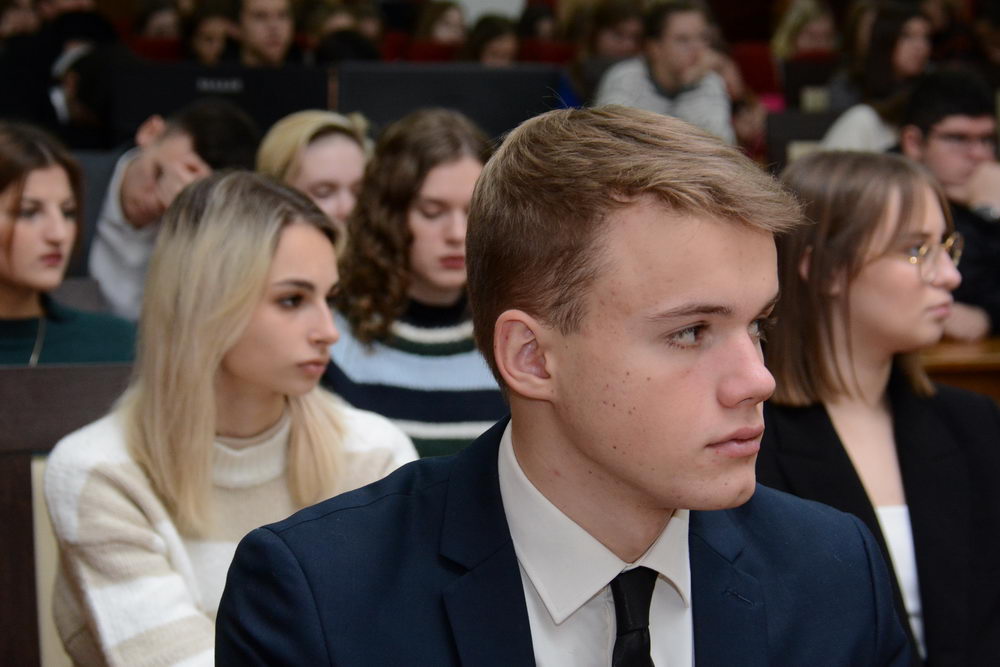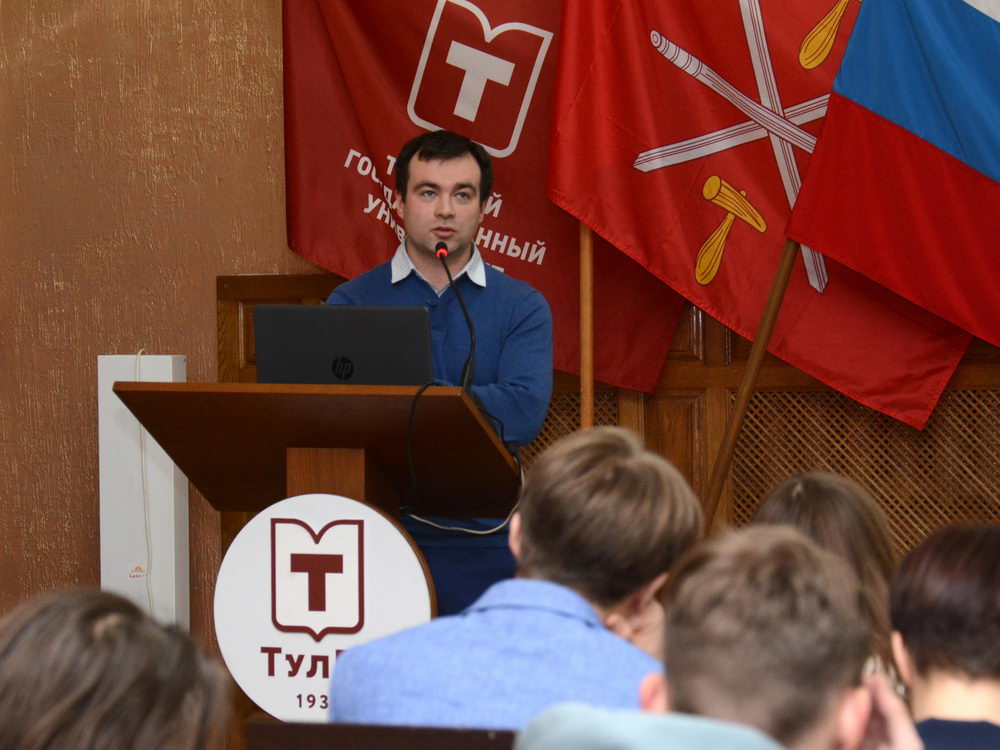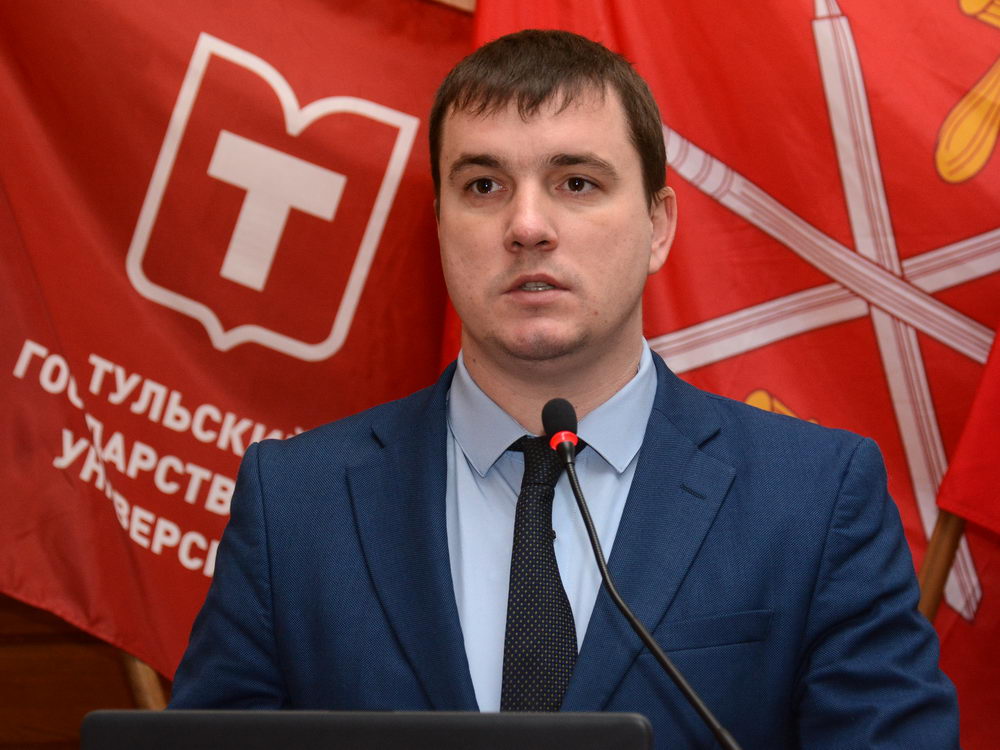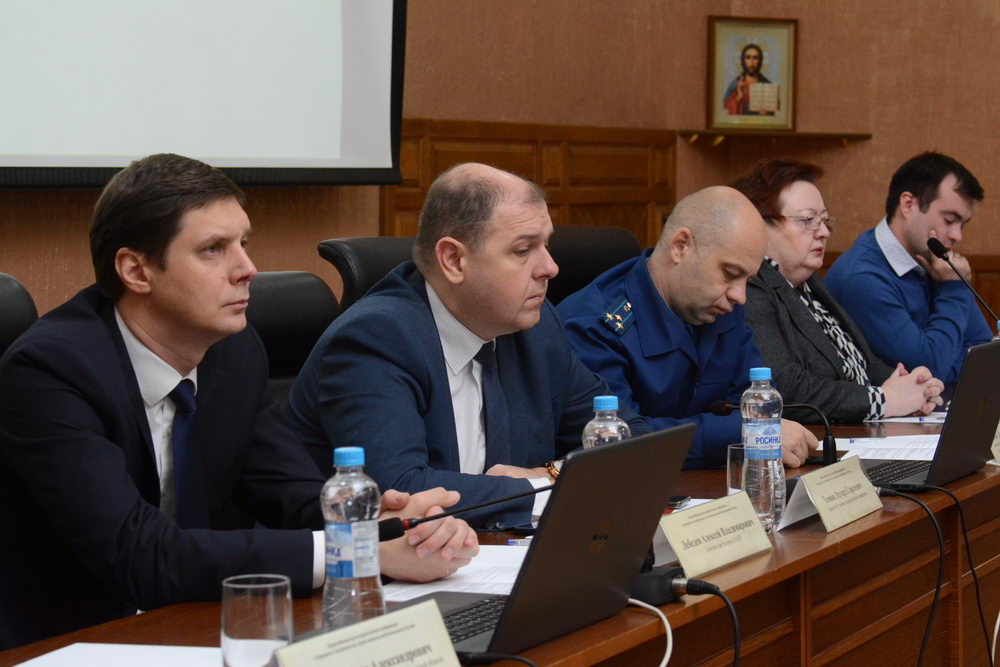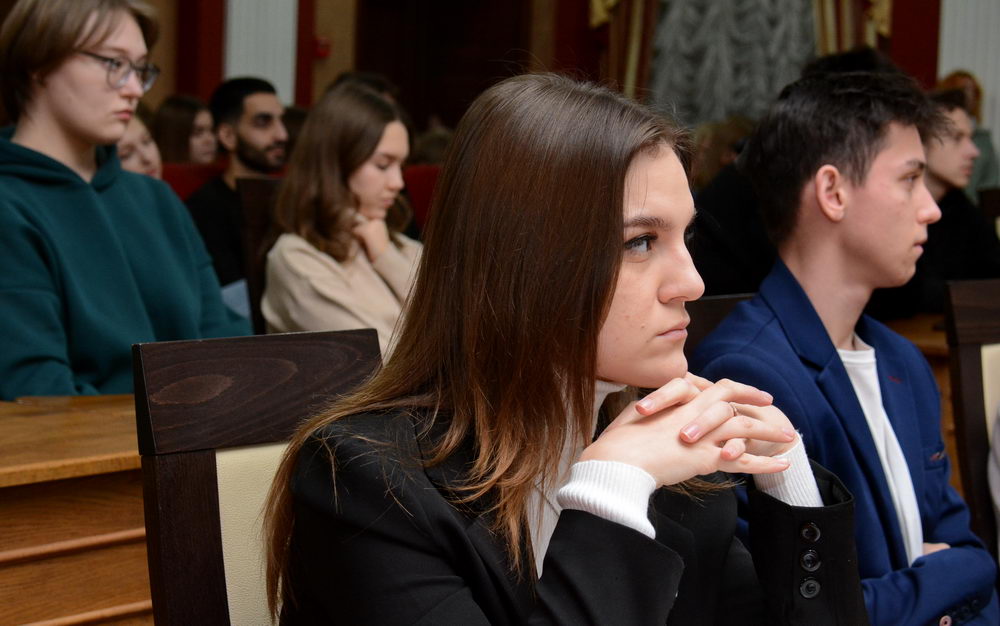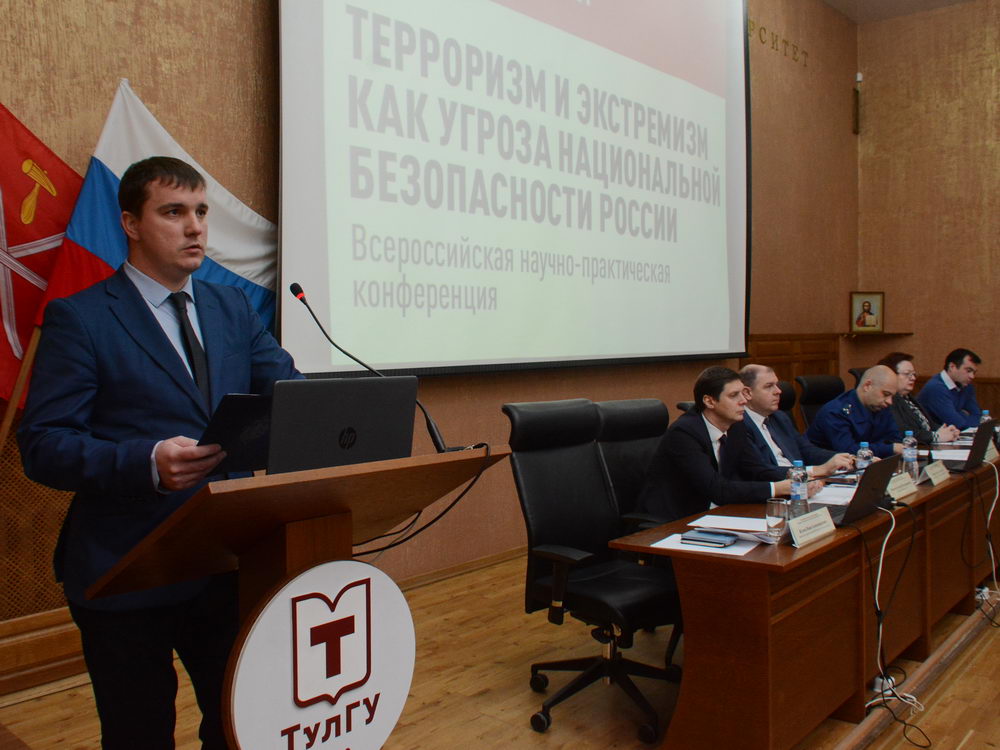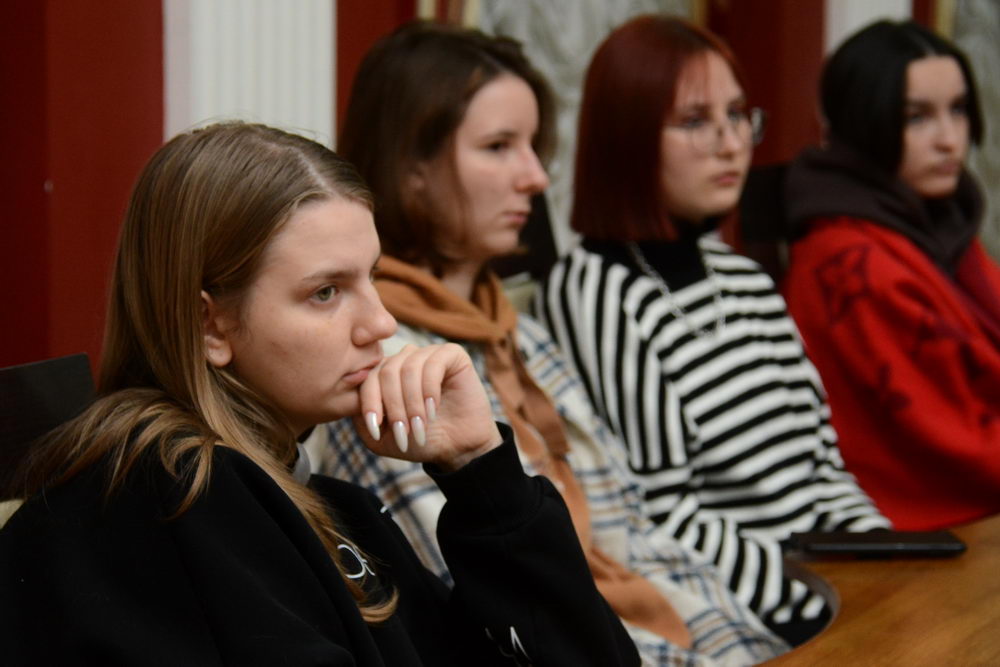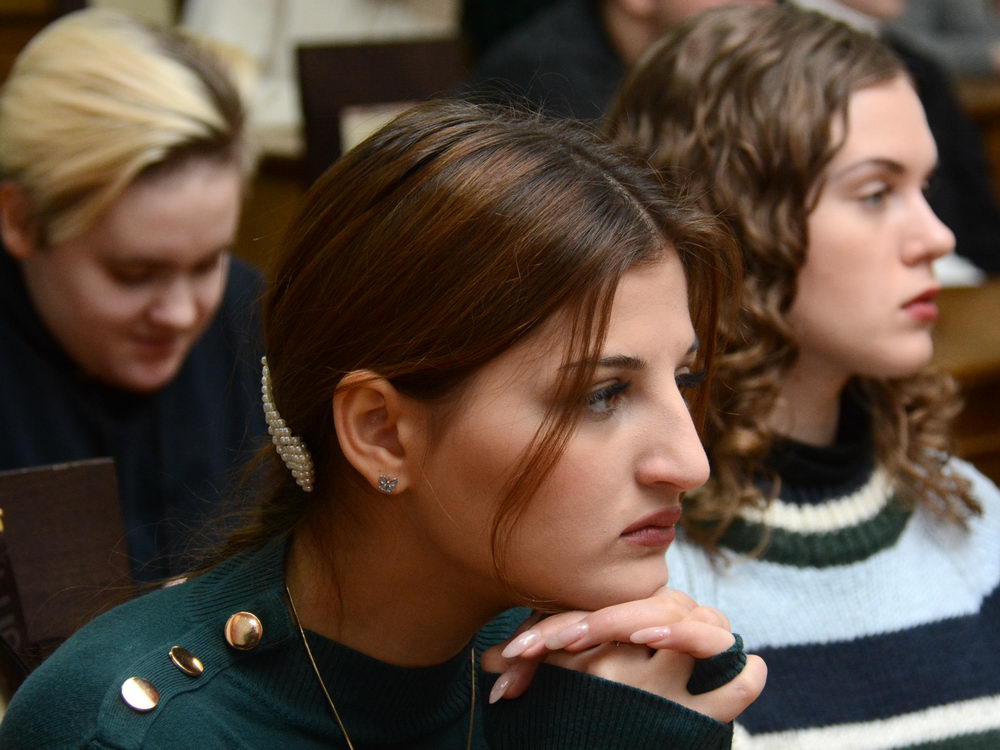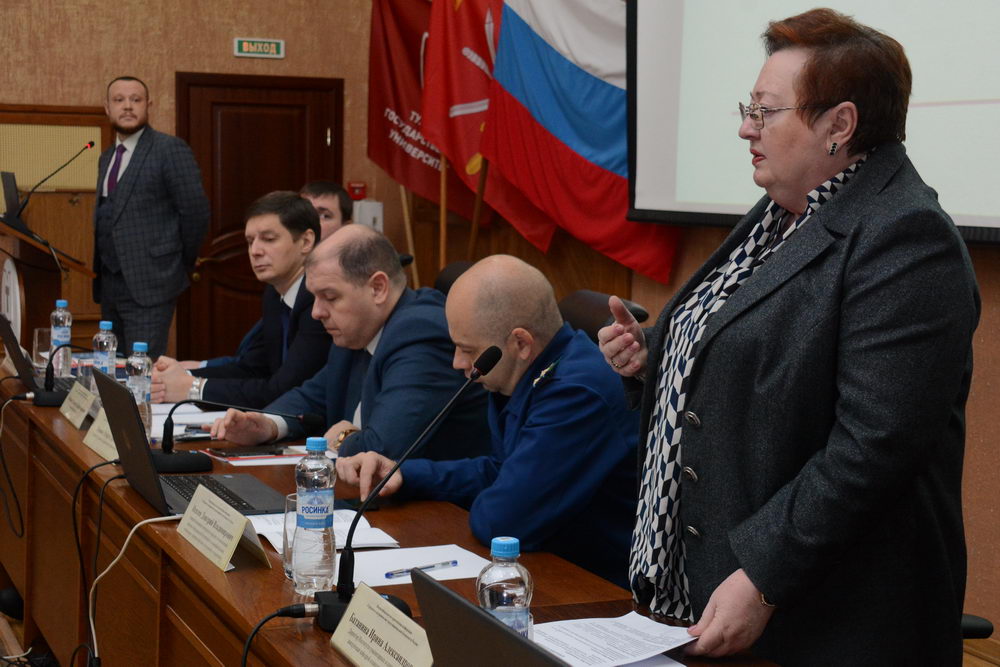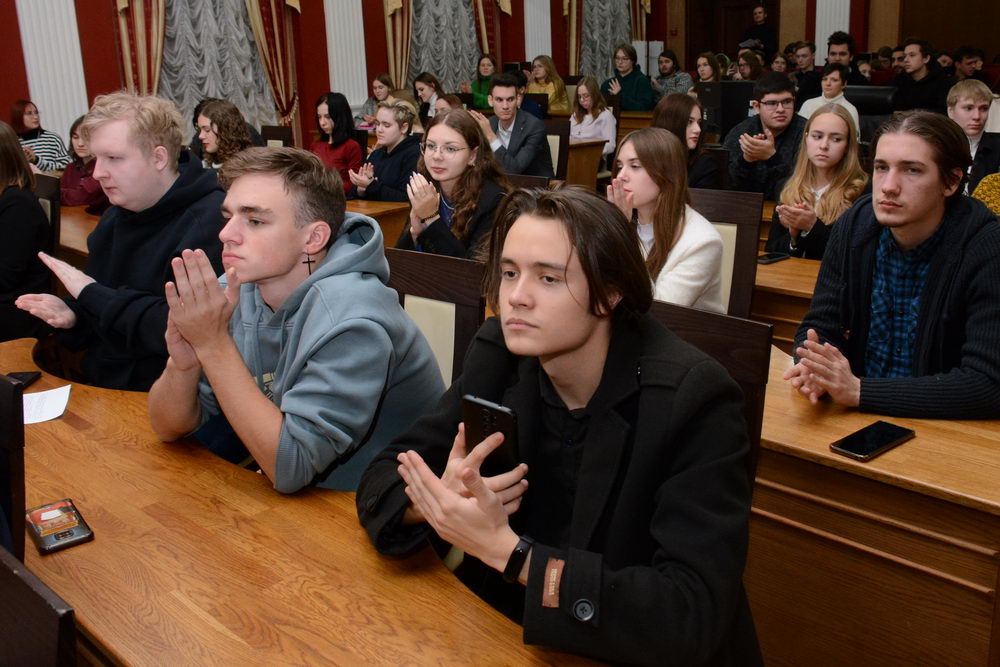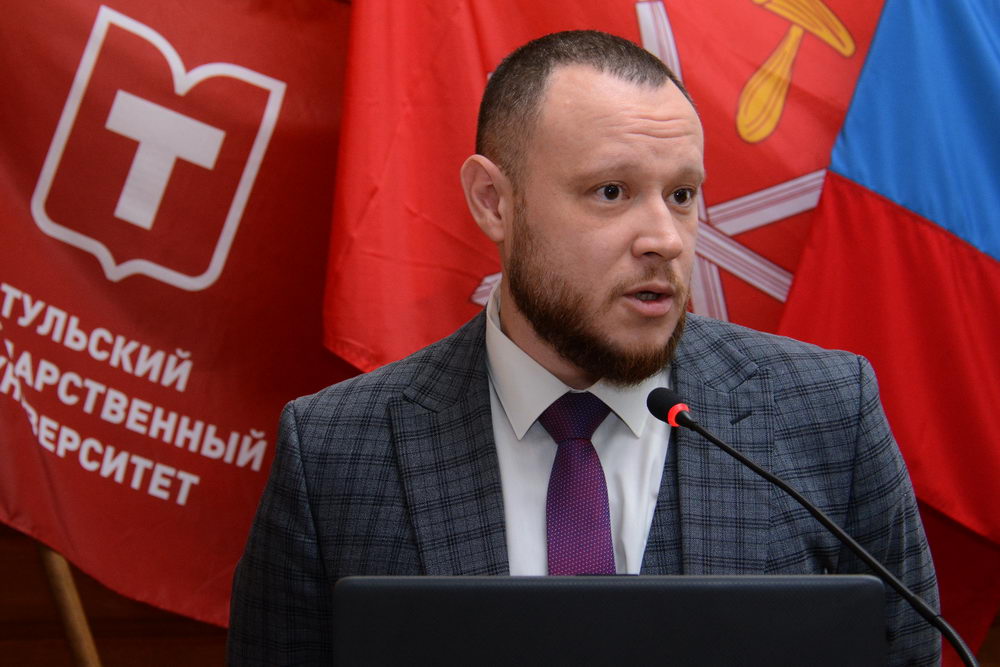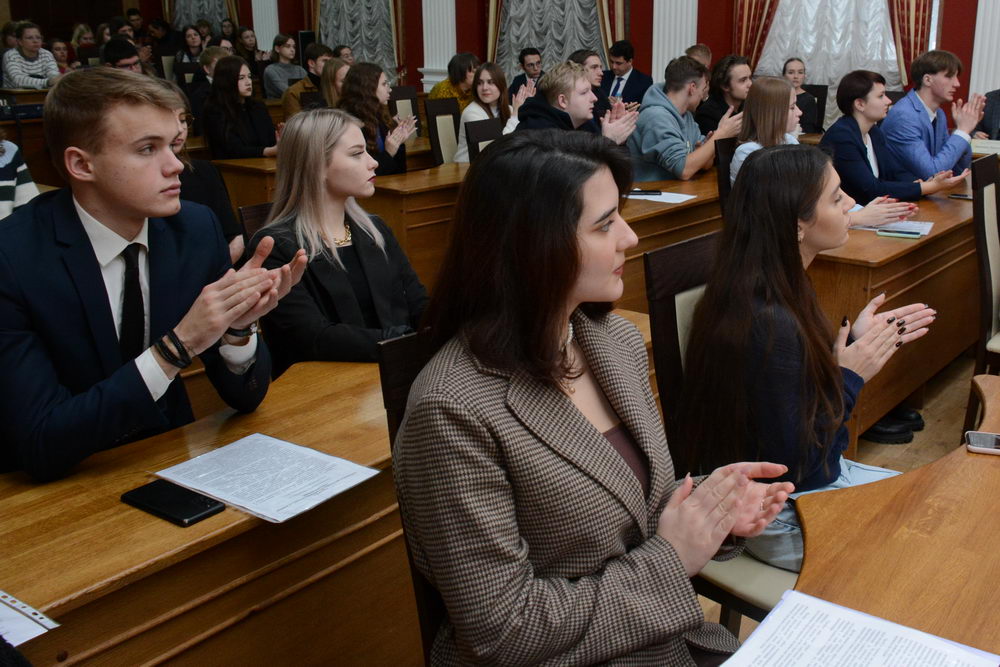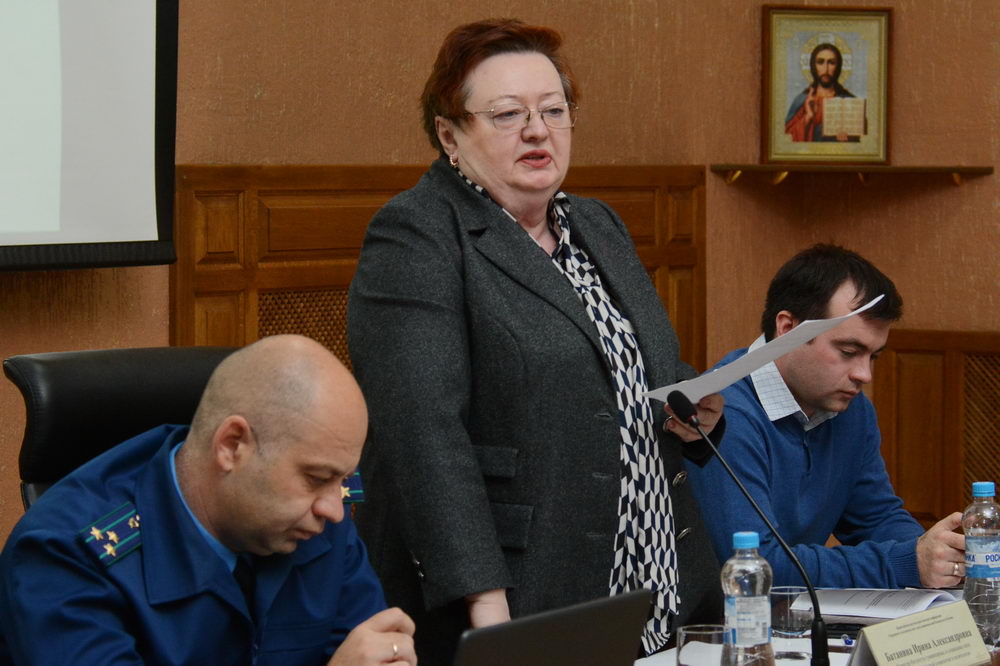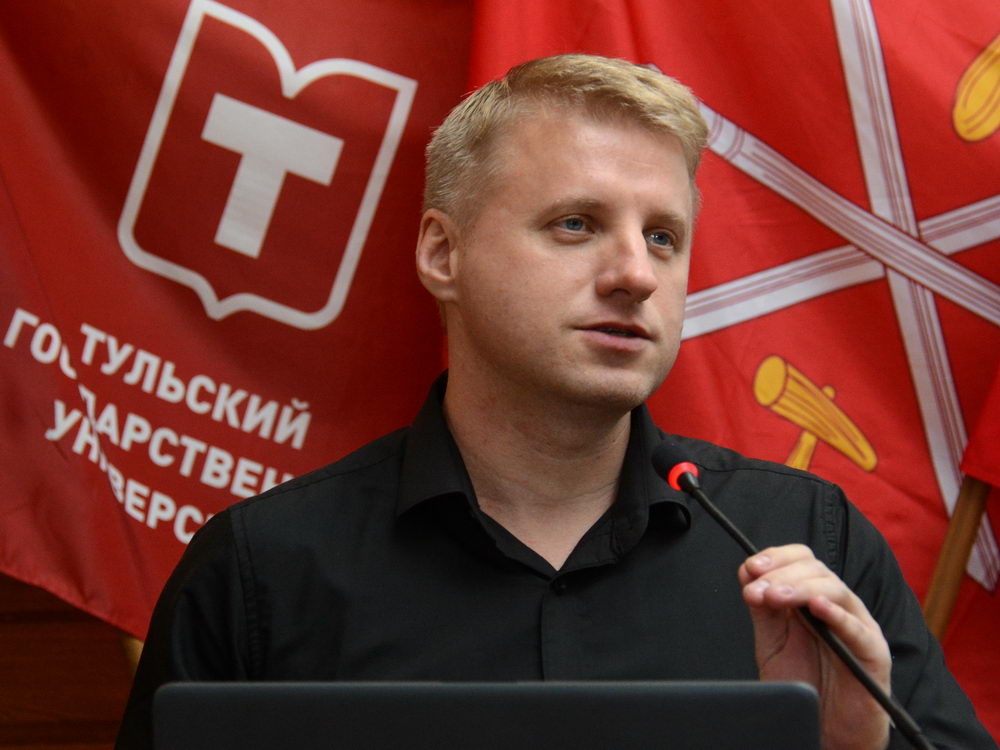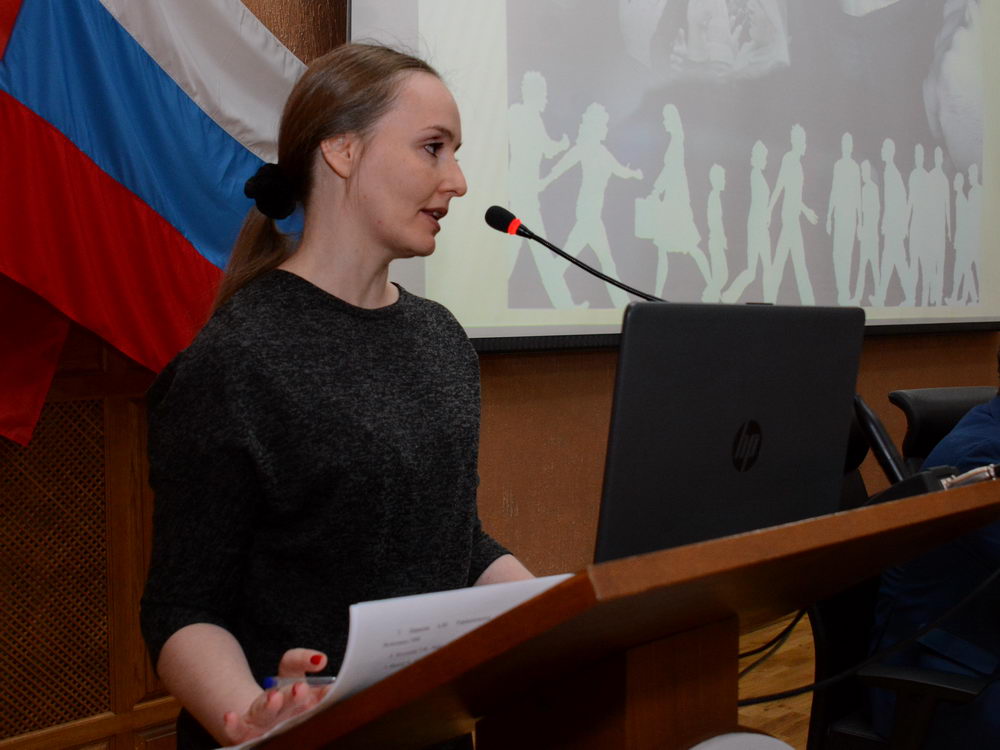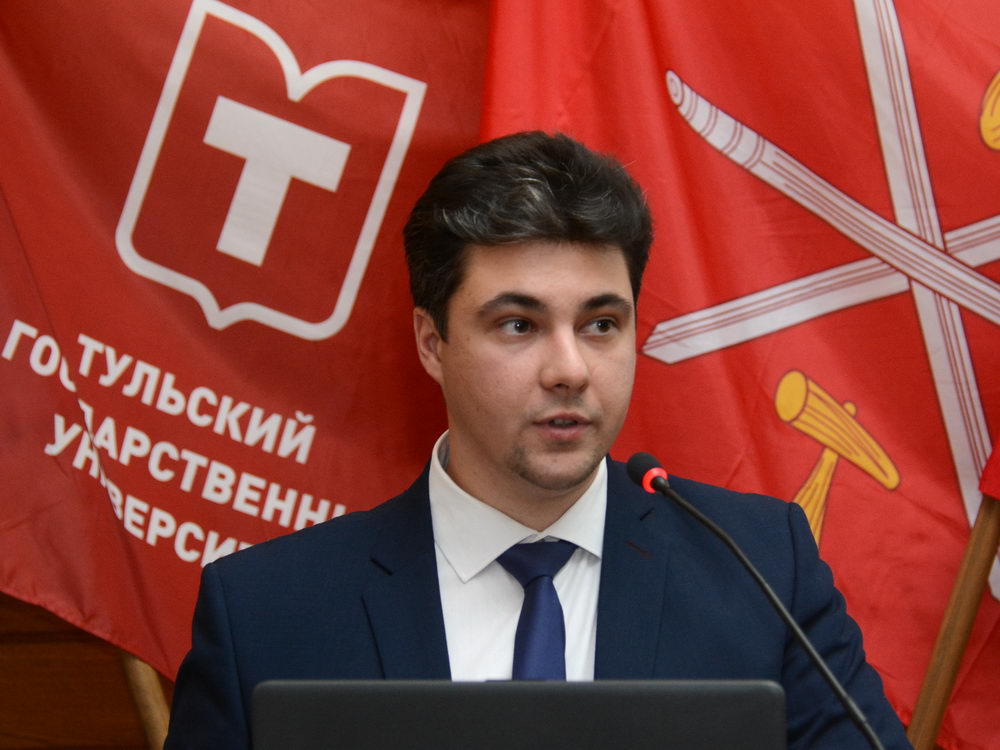- 21.11.2023
NO to terrorism and extremism!
On November 21, the annual All-Russian scientific and practical conference “Terrorism and extremism as a threat to the national security of Russia” was held at Tula State University in a part-time format. It was organized by the Institute of Humanities and Social Sciences of Tula State University, the Tula regional branch of the Russian Association of Political Science, the Tula regional branch of the Russian Society of Sociologists and the Tula regional branch of the Russian Society of Political Scientists. Students from Yoshkar-Ola, Moscow, Nizhny Novgorod, Orel, Tula and the Udmurt Republic took part in the conference. The plenary session of the scientific event was opened by Vice-Rector for Educational Work Eduard Sergeevich Temnov. The very name of the conference, he emphasized, carries a deep meaning. Unfortunately, terrorism and extremism are a disease that exists throughout the world. And keeping silent about it is equivalent to a crime. Therefore, it is very important that people learn how to fight this disease. Eduard Sergeevich expressed confidence that the students present at the conference will become conductors of thoughts and ideas that will be voiced at it.
The vice-rector wished all participants productive work and interesting discussions.
At the conference, said Doctor of Political Sciences, Director of the Institute of Humanities and Social Sciences Irina Aleksandrovna Batanina, topics that are very relevant for our time are discussed. After all, right now a new architecture of international relations is being created.
The speakers, Irina Aleksandrovna continued, are people who deal with the problems discussed at the scientific event. The knowledge and experience of practitioners and their vision of the situation allow students to get an idea of what is happening not only in our country, but throughout the world.
The head of the department of the Federal Security Service of Russia for the Tula region, Ivan Aleksandrovich Zhukov, dedicated his speech to the prevention and suppression of the destructive activities of participants in the Columbine youth terrorist movement. The movement got its name from the school of the same name, located in Jefferson County, Colorado, where on April 20, 1999, two high school students committed a massacre of students and a teacher. Ivan Aleksandrovich focused on the factors contributing to the involvement of young people in destructive activities, and spoke about the work to counter terrorism and extremism carried out in the Tula region. The guest urged students not to remain silent about moments that are harbingers of negative actions. All this, he said, will allow law enforcement agencies to quickly respond to the current situation. The head of the department of the Center for Combating Extremism of the Russian Ministry of Internal Affairs for the Tula Region, Pavel Sergeevich Chukaev, paid attention to modern areas of countering extremism among youth.
Young people, he emphasized, are the most tasty morsel for extremist movements. That is why boys and girls must develop certain algorithms that allow them to resist being drawn into destructive activities.
Firstly, it is necessary to critically assess the situation and approach it from the position of K.S. Stanislavsky “I don’t believe it!” Secondly, it is imperative to double-check the information and contact official sources. And thirdly, try to communicate more with competent people, your teachers, mentors, who, due to their experience, are able to analyze a particular situation and help understand it.
Its director, head of the Department of Integrated Security of Tula State University Nikita Vasilievich Nikitenko spoke about the role of the Coordination Center on the formation of an active civic position among young people, the prevention of interethnic and interfaith conflicts, countering the ideology of terrorism and preventing extremism.
The goal of the Coordination Center, the speaker emphasized, is to implement a set of educational, informational, analytical and preventive measures aimed at developing an active citizenship among young people, preventing interethnic and interfaith conflicts, countering the ideology of terrorism and preventing extremism.
The concept of countering the ideologies of terrorism and extremism, Nikita Vasilyevich noted, is based, among other things, on all-Russian civic identity, which means solidarity, civil unity, awareness of one’s belonging to the Russian people, common history, culture and Russian statehood.
Understanding our historical past, he said, will make us all true citizens of our great country. Through this, it is precisely possible to resist radical movements. Candidate of Political Sciences, Associate Professor of the Department of Sociology and Political Science Andrei Vladimirovich Makhrin, in a philosophical vein, highlighted the role of positive informal socio-political institutions, such as institutions of friendship, camaraderie and partnership, morality, public opinion and mentoring, in the fight against terrorism and extremism in modern times. Russian society. Candidate of Psychological Sciences, Associate Professor of the Department of Psychology Yulia Igorevna Fomina drew the attention of conference participants to the features of extremism as a socio-psychological phenomenon.
Extremism, she noted, is a type of violence, purposeful, deliberate aggressive behavior of an individual (verbal or active) towards another person or social group, associated with a violation of the basic sense of trust in the world, motivated by the ideology of personal superiority and manifested by intolerance and xenophobia towards the object of violence.
An extreme personality is usually distinguished by an exaggerated idea of one’s own role in society, a sense of superiority over others, and moral nihilism (a worldview in which a person believes that the world and human existence have no meaning and mean nothing).
In his speech, Maxim Vladimirovich Khlanta, a teacher at the departments of “Theology” and “Public and Administrative Law” of Tula State University, the department of church-practical disciplines of the Tula Theological Seminary, touched upon the main directions and methods of preventing religious radicalism and extremism among students. As possible measures, he named creative and sports events that help unlock the potential of students, support for the education and training system based on traditional moral values, increasing the level of training of teaching staff, participation of self-government bodies in the prevention of extremism, sociological research aimed at monitoring religious radical moods.
After the plenary session, the conference continued its work in three sections: “Terrorism and extremism in modern Russia: content, causes and forms of manifestation”, “Countering terrorism and extremism: modern methods and means”, “Legal methods of limiting terrorism and extremism in modern Russian society "
Tatyana Krikunkova
Photo by Mikhail Gindin


